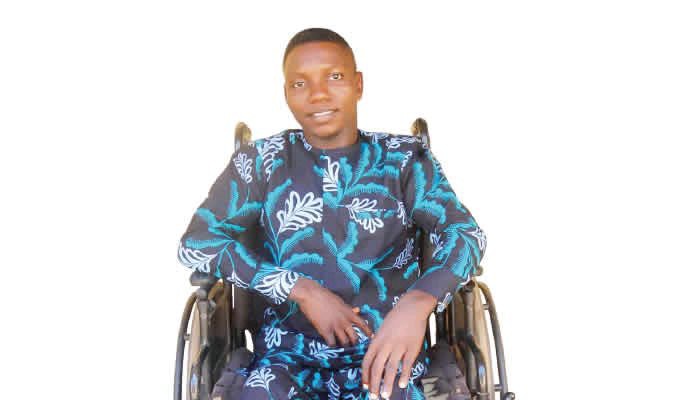According to Punch Newspaper, Yemnen Solomon, a 28-year-old graduate from Benue State, has faced a series of physical and social challenges throughout his life. At the age of two, he lost his ability to walk due to a medical complication that altered the course of his life. Despite the circumstances, he has steadily defied societal expectations and physical limitations. His story reflects the quiet strength and resilience of many persons living with disabilities in Nigeria, whose determination to succeed in the face of discrimination often goes unnoticed. Solomon’s academic journey, punctuated by personal sacrifice and perseverance, demonstrates a long-standing resolve to live beyond the limitations of his physical condition.
Born into a modest family, Solomon’s early life was centered in a small town in Benue, where access to specialized healthcare was limited. After a medical mishap rendered him unable to walk, he began navigating life in a way different from his peers. As he grew older, he became increasingly aware of the societal biases directed toward people with disabilities. From his early years in primary school to his time in higher education, Solomon frequently encountered the kind of dismissive attitudes that could derail even the strongest ambitions. In many instances, the community around him perceived his pursuit of education as futile because of his condition, but he remained undeterred.
Throughout his academic life, Solomon was often made to confront prejudices that many of his able-bodied peers did not face. He recalled a moment during his university days when he requested assistance from a fellow student to help him reach a lecture hall. Instead of receiving help, he was told it was pointless for someone like him to continue schooling when others in similar situations had turned to trades like shoemaking. This incident encapsulated the kind of discouragement that he often had to work against. For him, such moments were not rare, but each time he chose to focus on his long-term goal of obtaining an education and carving out a space for himself in society.
The infrastructure in most schools he attended was not designed to accommodate his mobility needs. Lecture halls were often inaccessible, and he had to rely on goodwill from a few understanding classmates. In many cases, support was absent, and Solomon had to develop his own strategies to cope. Yet, these limitations never stopped him from attending classes, completing assignments, or participating in group discussions. His persistence helped him complete his undergraduate studies, a milestone that not only marked personal achievement but also served as a quiet statement against the prejudices he had faced along the way.
Solomon’s determination did not go unnoticed by a few observant peers and lecturers who eventually came to admire his tenacity. Though formal systems of support were lacking, he occasionally found allies who helped him navigate the more complex demands of academic life. But for the most part, his strength came from within. He understood early on that his condition could be either a barrier or a motivator, and he consistently chose the latter. It was this mindset that kept him going, even when the odds were not in his favor. As he moved through the university system, he carried with him the same optimism that had driven him through primary and secondary school.
Now a graduate, Solomon reflects on his journey with a sense of fulfillment, not because his road was easy but because he chose not to be defined by his physical limitations. He has plans to contribute meaningfully to society, either through formal employment or personal initiatives. Though he acknowledges the challenges that still lie ahead, especially in a society where employment opportunities for persons living with disabilities remain scarce, he continues to believe in his capacity to create value. He aspires to work in a space where his skills are recognized and his contributions matter, regardless of his mobility issues.
The broader picture of Solomon’s story mirrors the experience of many Nigerians with disabilities who strive to be more than society expects of them. Discrimination, lack of accessibility, and inadequate institutional support continue to be obstacles. Yet, individuals like Solomon challenge these narratives through personal resilience. His journey emphasizes the need for inclusive education policies, accessible public infrastructure, and societal attitudes that see beyond physical appearances. These changes are not just necessary for people with disabilities but for a society that values the contributions of all its citizens.
He said: Once, I asked someone to assist me in getting to the lecture hall, and he said, “Why are you suffering yourself going to school when your mates are into shoemaking and other trades?” He added, “How will you work after your studies?”
Love Reading Authentic News Stories, Click The Button Below

